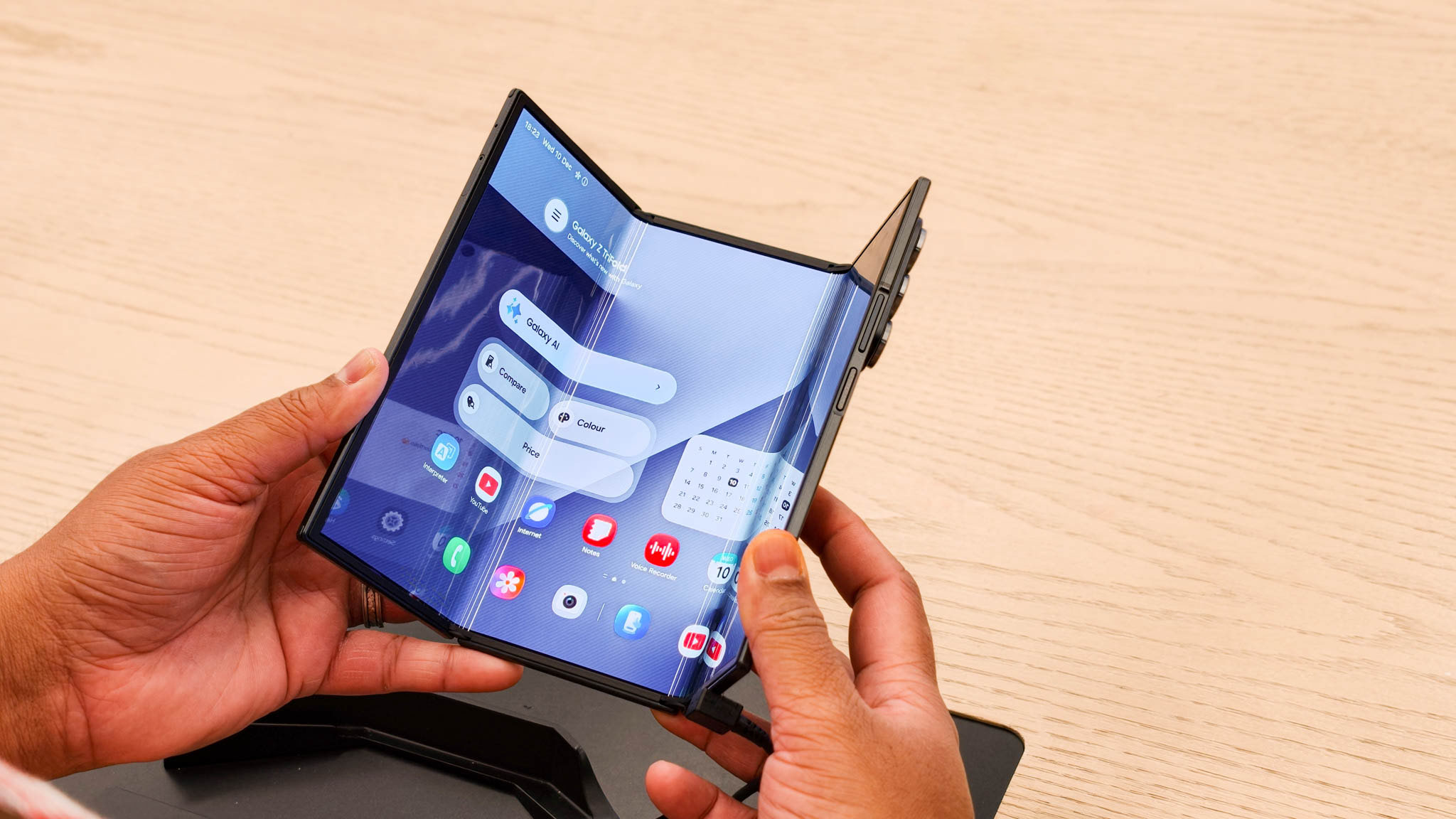Why I'm intrigued by Galaxy XR as a gaming device
Immersive 4K VR titles sound compelling, but Galaxy XR's multitasking UI and PC Gaming Link are just as important for gamers.
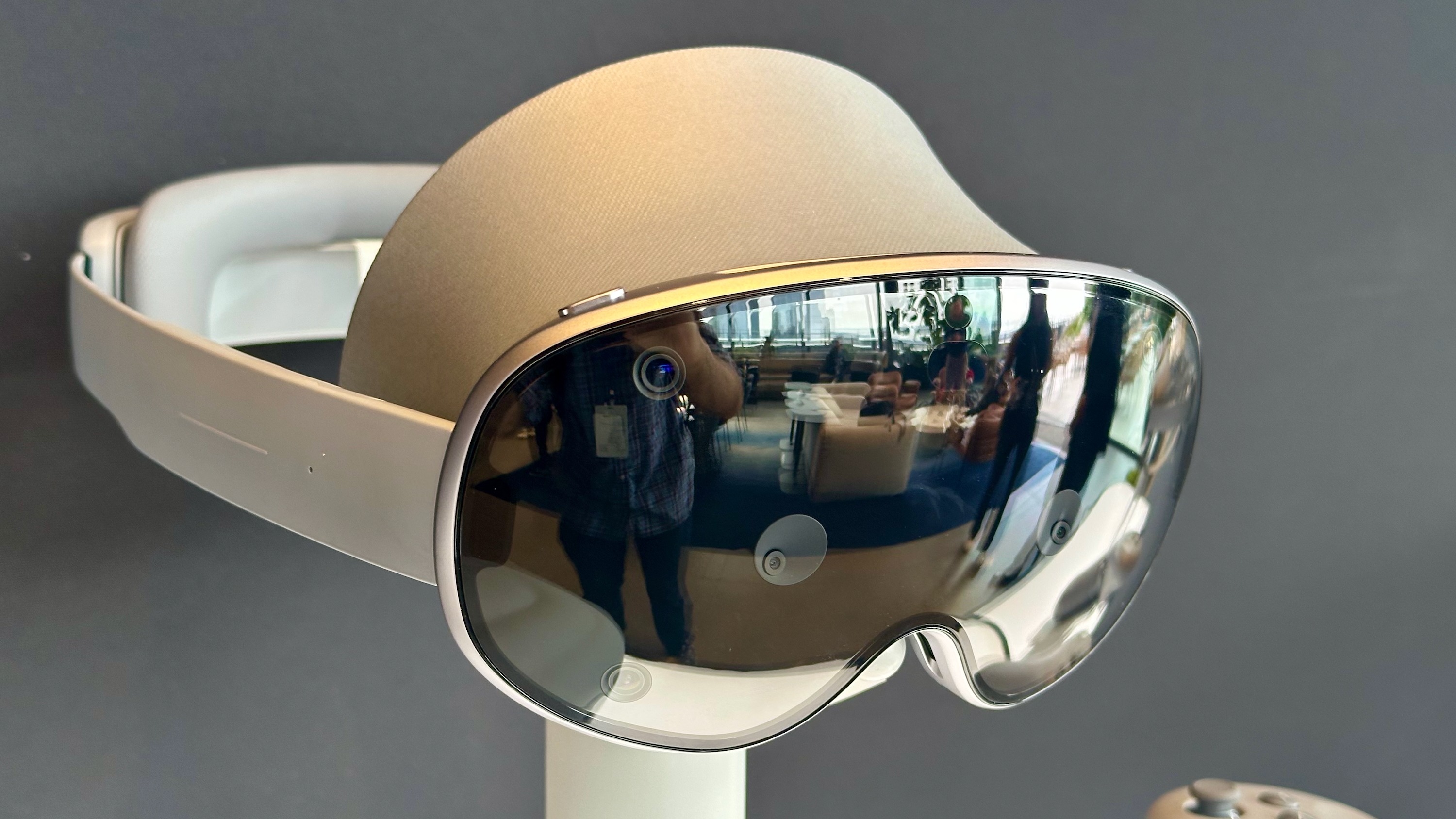
Before I tested Galaxy XR in New York, I suspected Samsung would ignore gaming and focus on making it a "serious" XR device. But after Samsung reps showed off Stardew Valley, No Man's Sky, and traditional VR games on the headset, I was intrigued. And the more I've learned about the headset, the more convinced I am that it's a genuine, unique gaming device I'd love to use.
VR fans will find a decent list of Android XR launch titles, with some personal faves like Walkabout Mini Golf, Synth Riders, and Demeo, plus some workout titles like FitXR to turn Galaxy XR into an immersive gym. It supports Unity and the OpenXR standard most VR games use, so I'm certain the list will grow quickly.
But as gorgeous as these games will look on a Micro-OLED, 3,552 x 3,840 resolution display, that alone wouldn't get me to spend the $1,799 to get a Galaxy XR. It's the combination of XR games, Android app support, wireless PC connectivity, multitasking UI, and wide field of view (FoV) that could turn Galaxy XR into a premium gaming monitor and accessory rolled into one device.
Galaxy XR is designed for multitasking gamers like me
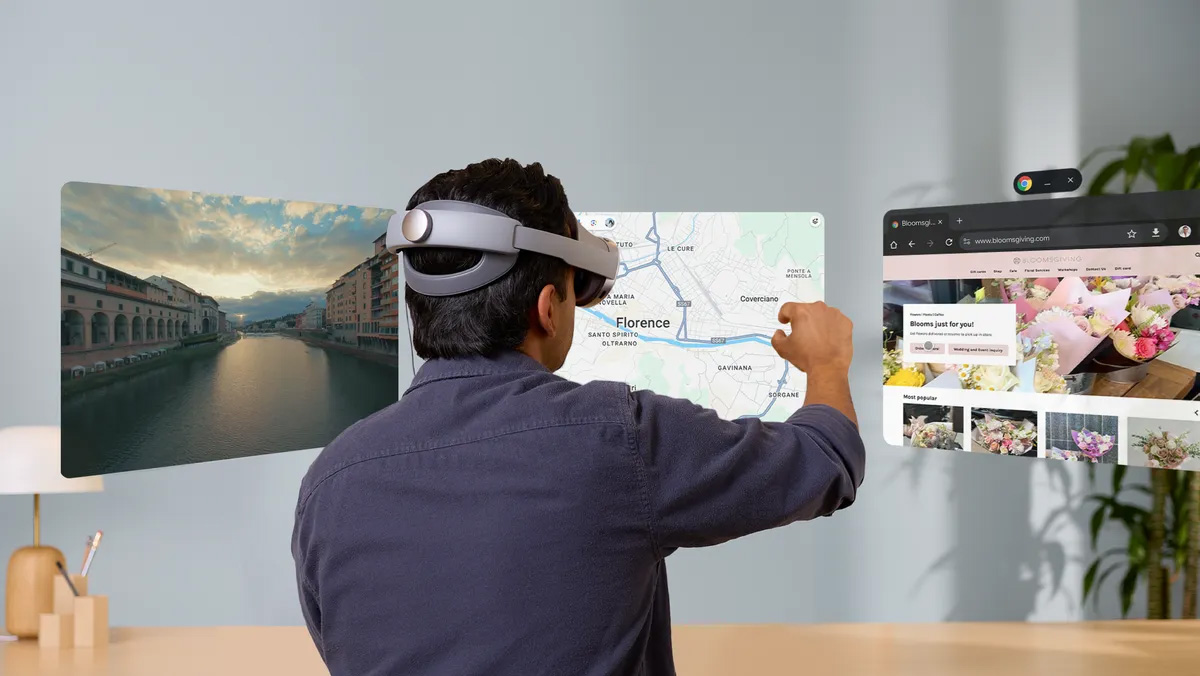
Gamers buy Android handheld consoles because they enjoy Android games like COD: Mobile, Genshin Impact, or Roblox on a larger display with better controls and max graphics. Galaxy XR dials that concept up to 11, with virtual, TV-sized displays, flagship-level performance, and Bluetooth compatibility with most controllers.
The powerful Snapdragon chip with 16GB of RAM is overkill for most mobile games, but Galaxy XR's secret weapon is its boundary-free space for multitasking. During several gaming demos, Samsung paired games with other demanding apps like Google Meet for online multiplayer chat, YouTube for walkthroughs, Gemini for gameplay advice, or a music app for ambience.
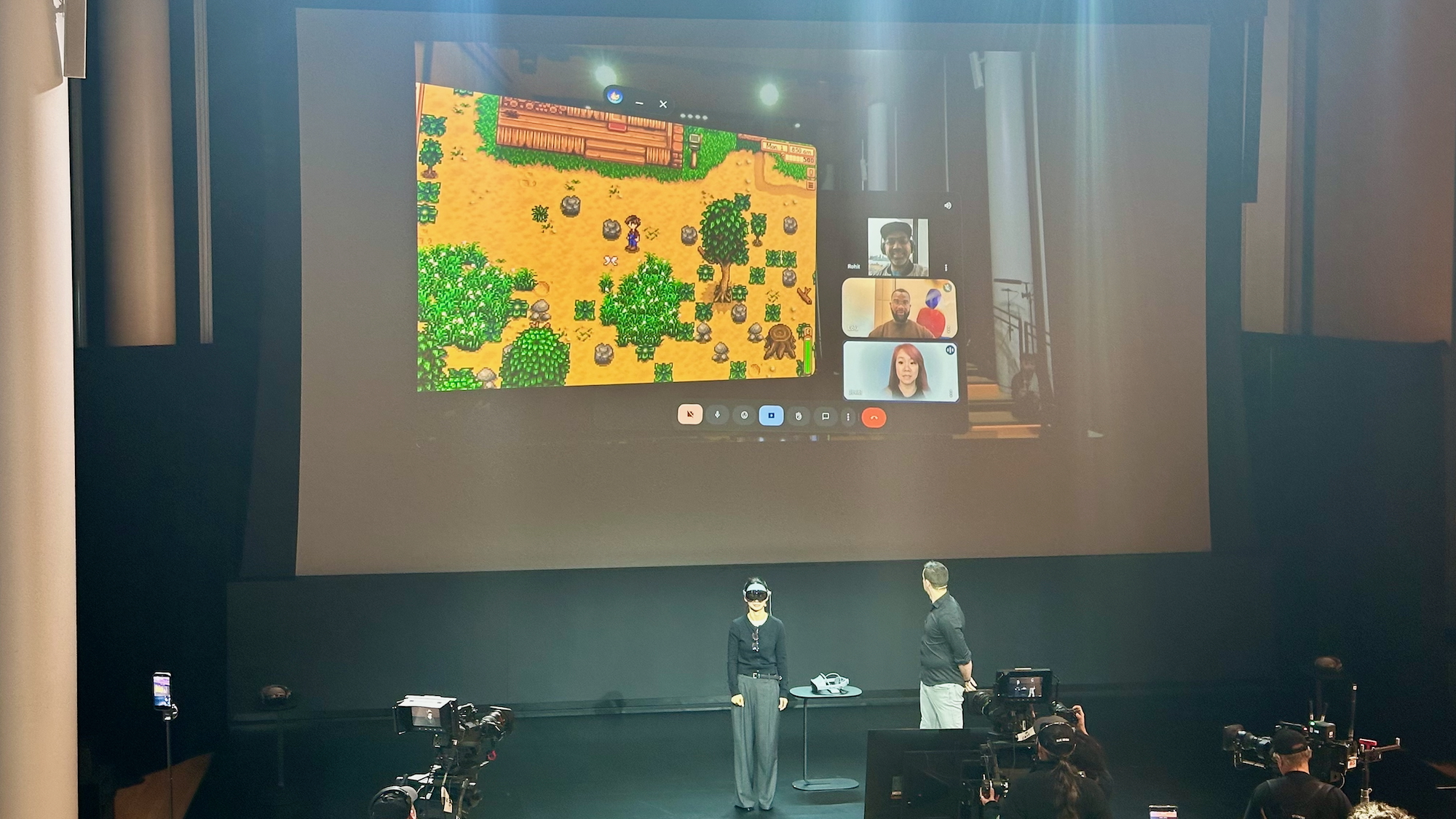
PC gamers can accomplish this multitasking effect with multiple monitors and a powerful rig. Galaxy XR recreates this effect, except you can stack windows vertically so it's easier to keep both in your vision at once, or use more than two windows. And you can play it anywhere, including in bed.
I like to keep my brain occupied while gaming, but I'm typically restricted to audio-only options like a podcast. With Galaxy XR, I could arrange more content to fit in my direct vision as I play. I could see myself enjoying a basketball livestream while playing a sandbox game where I don't need to react quickly, flitting my gaze between them. Or if I'm playing a more active game, I could binge a TV show I've seen before in a smaller window, so I'm only partially paying attention.
Get the latest news from Android Central, your trusted companion in the world of Android
I also have occasional online multiplayer sessions with old friends, during which we normally use Discord for audio; if, instead, I could video-call with them and see them in my peripheral vision, it would feel more like the old days where we played games in one room.
Galaxy XR goes beyond Android gaming
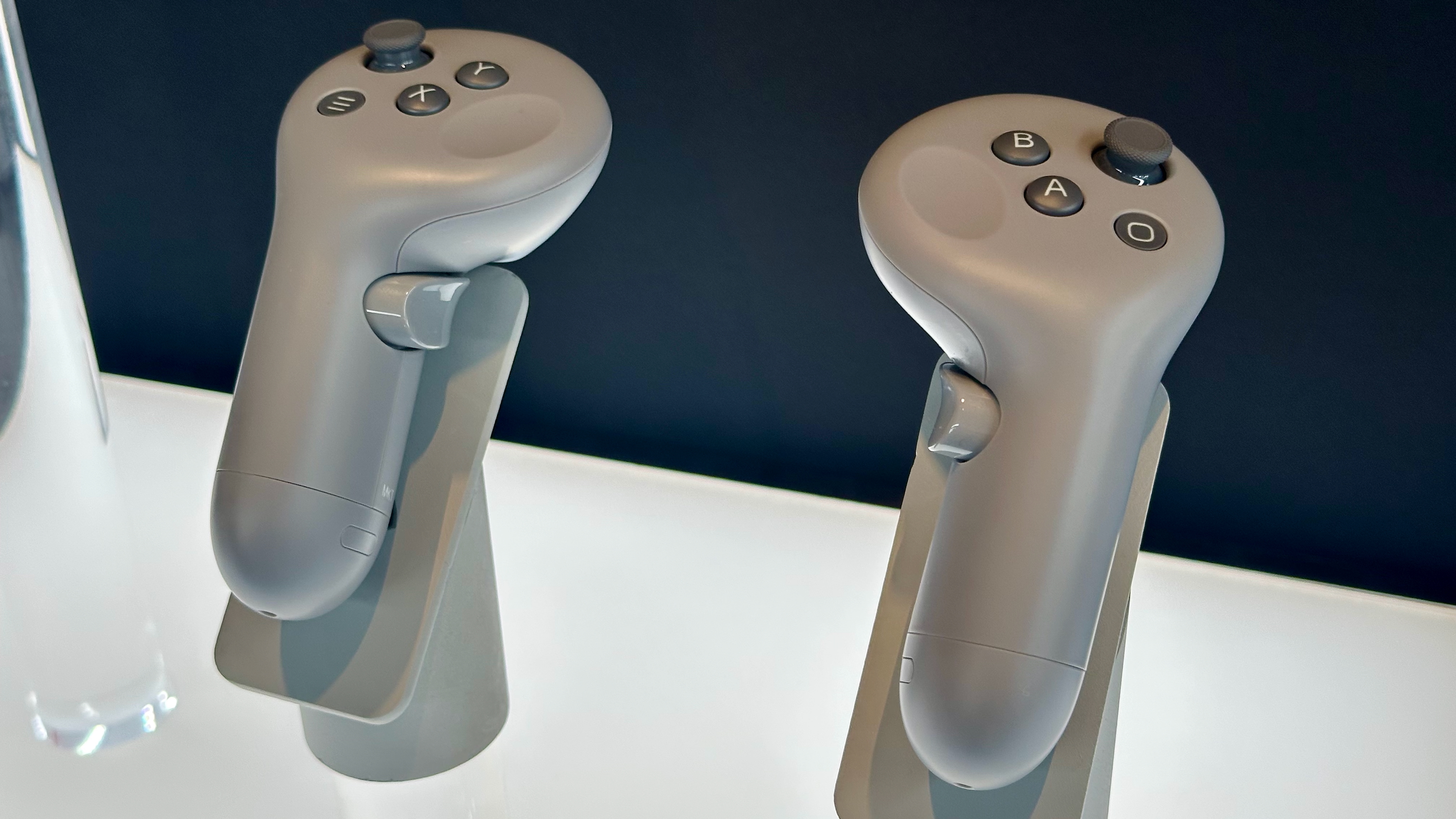
Since all Android apps are supported, you can stream games on GeForce Now, Xbox Game Pass, or PS Remote Play, giving you access to a wider range of titles. I only wish Google would bring back Stadia, which would be the perfect fit for this headset.
If cloud gaming uses too much bandwidth, Galaxy XR can sync wirelessly with your PC using the "Game Link" feature, unlocking your full Steam library of normal and PC VR titles at up to a respectable 90Hz — impressive given the 29 million pixels the headset has to refresh constantly.
An alternative option is the Virtual Desktop app, which pairs with your PC for work or play, and can take the headset's native eye, face, and hand tracking and pass it onto social VR games like VRChat.
Early Galaxy XR adopters have already started playing beloved titles like Half-Life: Alyx on the headset, with no wire to the PC required. And it's particularly cool that Galaxy XR supports Wi-Fi 7, reducing any latency between your PC and headset. Even though PC VR is a fairly niche ecosystem, I think Galaxy XR will certainly appeal to that crowd on the strength of its hardware.
Will Gemini help the Galaxy XR experience?
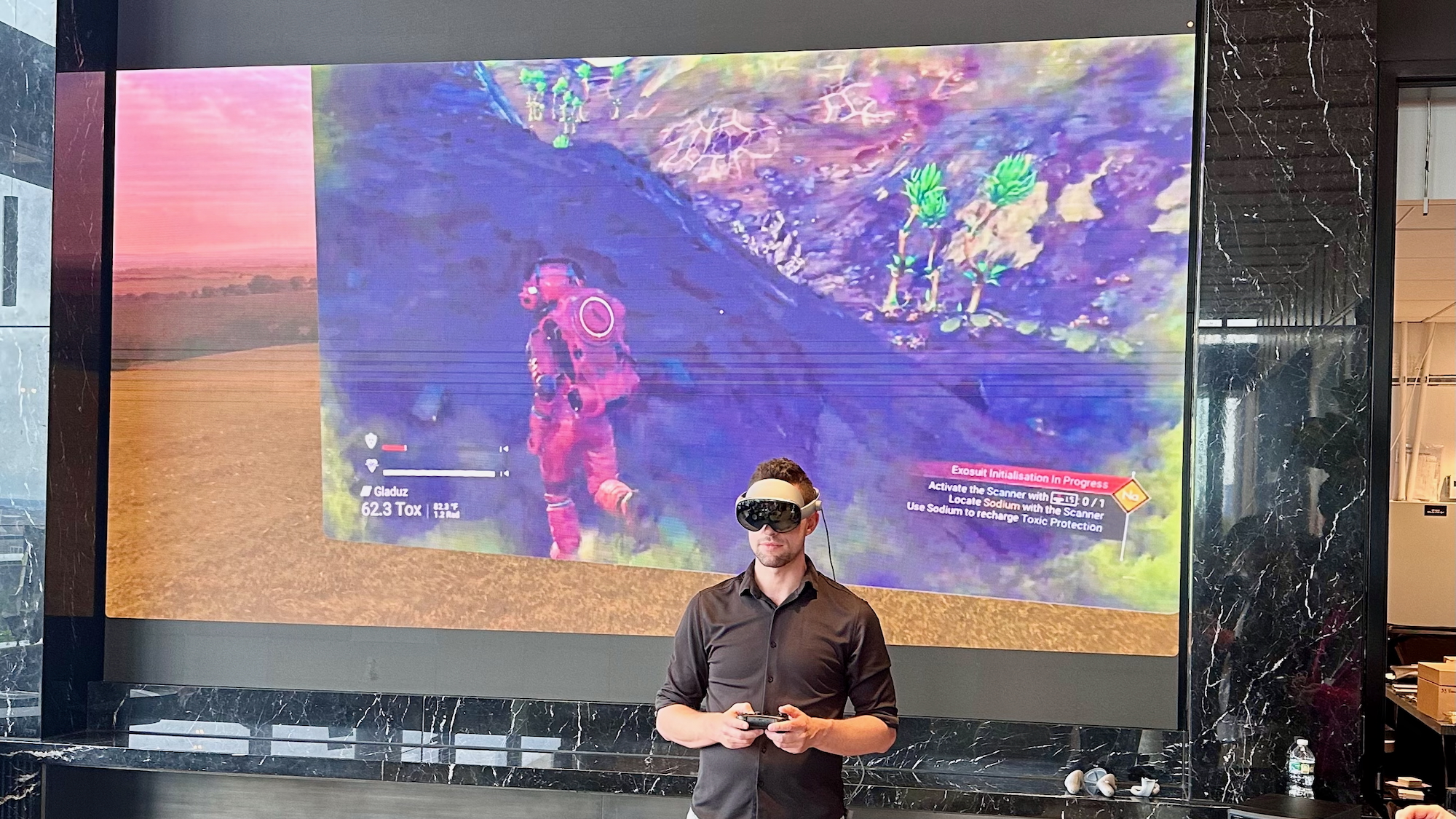
During the Galaxy XR demo, a Samsung rep shared his No Man's Sky gameplay window and asked Gemini how to accomplish his next task; the assistant answered with controls and walkthrough advice. It then gave suggestions on what he could do next on that alien world, when asked.
I'm not sure how well Gemini's multimodal software can interpret gameplay beyond the basics, yet, but it's an intriguing use case, one that could lead to real-time "coaching" in the distant future. For now, you can use Circle to Search to highlight something in-game and ask Gemini about it, which might be fun for a historical title like Assassin's Creed.
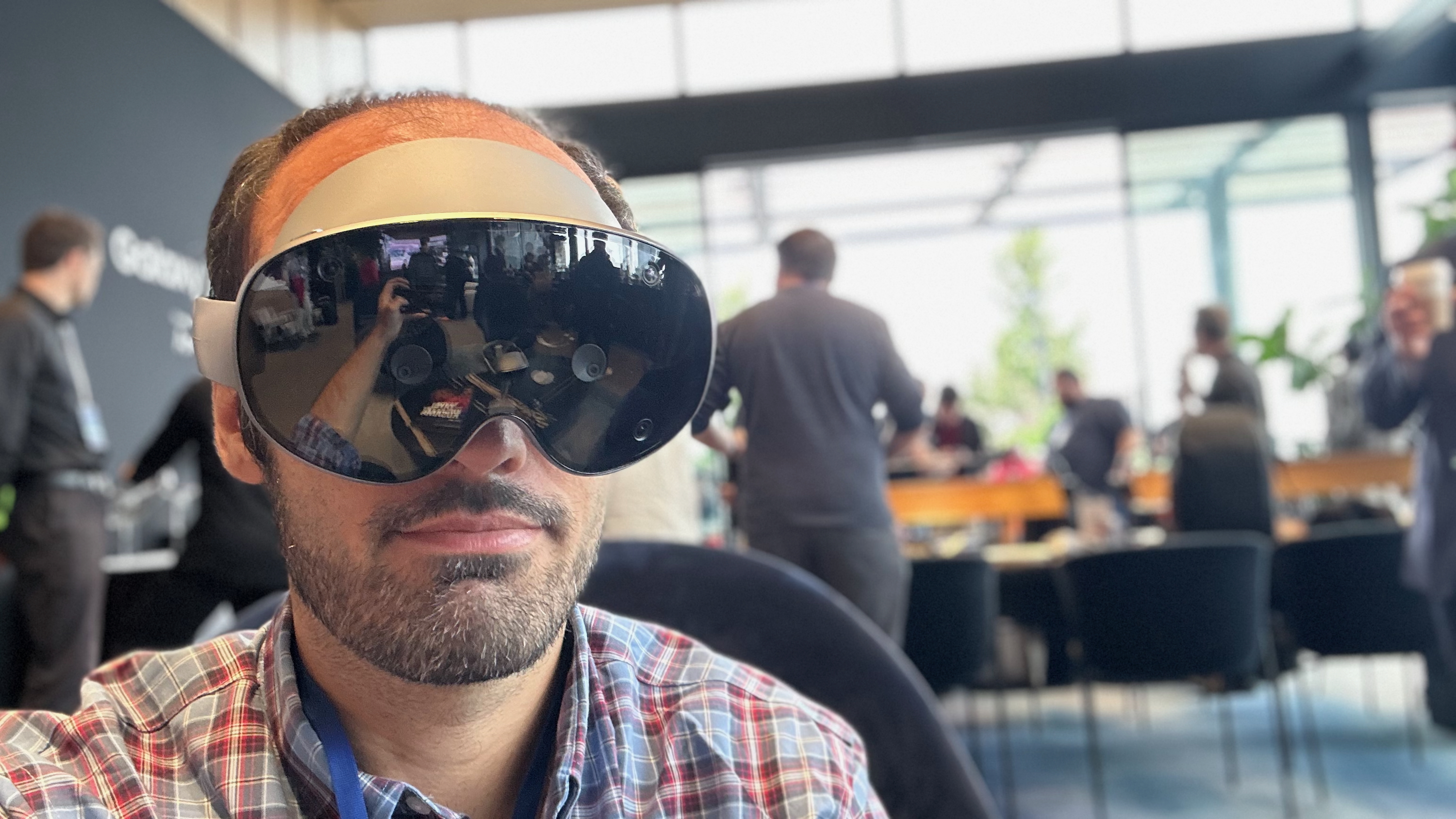
Overall, I think that Galaxy XR could be an excellent gaming device, and I'm looking forward to putting it through its paces. Unfortunately, the Galaxy XR controllers sold out immediately, proving how many early adopters agree that it has potential. But since a lot of my potential gaming use cases involve traditional 2D gaming in a virtual space, I don't mind using my current Bluetooth controllers (or hand tracking) until they become available.
Based on my early testing, it's lightweight enough that I can see myself playing with it for hours, the visual fidelity is gorgeous, passthrough stops me from feeling isolated, and the UI to move windows around is seamless. Whether or not Galaxy XR lives up to its $1,799 price tag for you, it's worth taking seriously as a gamer, particularly for PC VR.
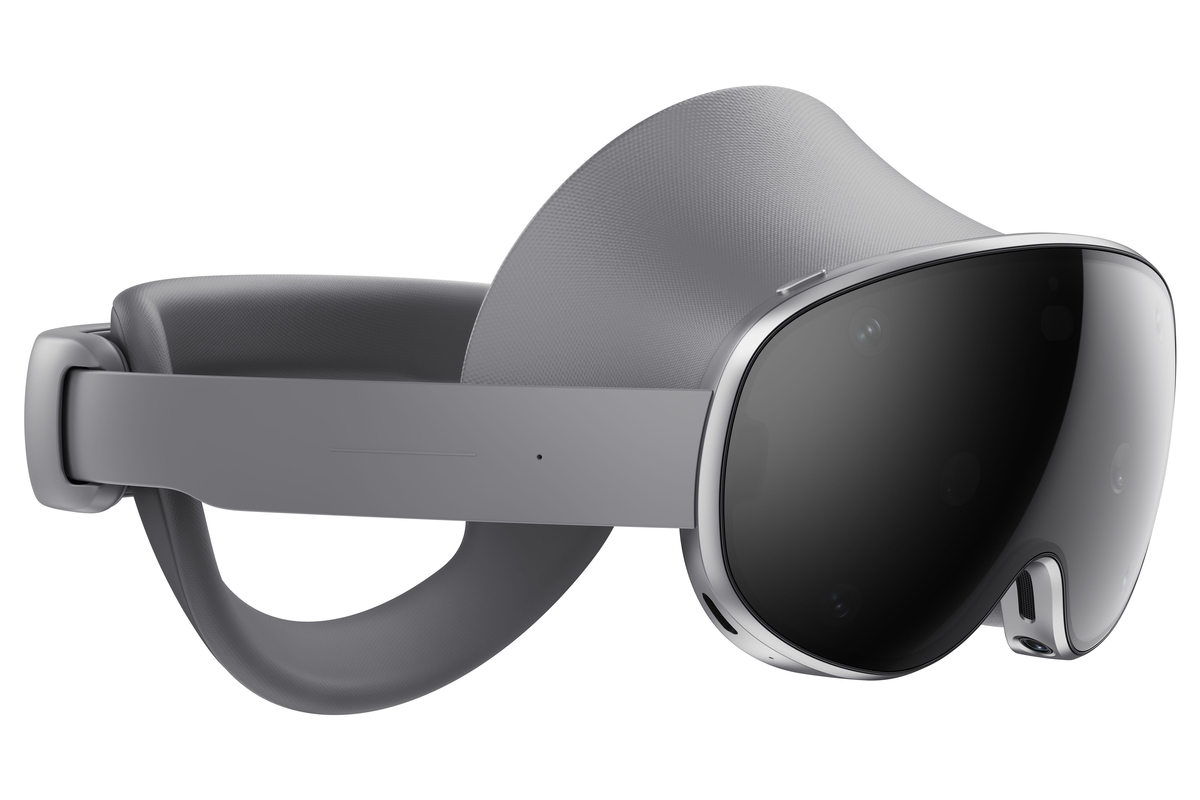
Get the best micro-OLED display on any wireless XR headset with the power of Android XR, all inside the comfortable Galaxy XR from Samsung.

Michael is Android Central's resident expert on wearables and fitness. Before joining Android Central, he freelanced for years at Techradar, Wareable, Windows Central, and Digital Trends. Channeling his love of running, he established himself as an expert on fitness watches, testing and reviewing models from Garmin, Fitbit, Samsung, Apple, COROS, Polar, Amazfit, Suunto, and more.
You must confirm your public display name before commenting
Please logout and then login again, you will then be prompted to enter your display name.
